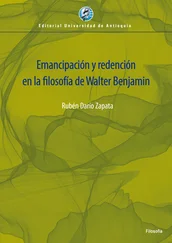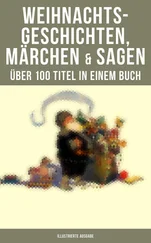Fontane tells us of one such society. From a letter found in an old book we learn of an order in whose ceremonies the harmonica plays an important role. The letter, from a harmonica virtuoso, reads as follows:
The address you gave me has provided me with a very interesting acquaintance in Herr N.… The harmonica meets with his utmost approval; and he speaks as well of various special attempts , which at first I did not properly grasp. Only yesterday did things become clear to me: —Yesterday evening we drove to his country estate, which leaves an extraordinarily handsome impression, especially the garden. Various temples, grottoes, waterfalls, labyrinthine pathways, and underground vaults, etc., treat the eye to such manifold diversity that the observer is left transfixed. Only the height of the all-encompassing wall would I do without; it robs the eye of a terrific view. — I had the harmonica and had to promise Herr N. that I would play it, on his cue, for just a few moments at a specific location. While waiting for this moment, he led me into a large room in the front part of the house and left me there, explaining that his presence was required to arrange the details and lighting for a ball. It was already late and just as sleep was upon me, I was roused by the arrival of several carriages. I opened the window but saw nothing conspicuous, understanding even less of the soft and mysterious whispering of the arriving guests. Shortly afterwards I once again succumbed to my weariness and fell sound asleep. I must have slept for an hour when I was awoken by a servant, who at once offered to carry my instrument and beseeched me to follow him. Because he was moving at a hurried pace, I could only follow at some distance, which allowed me the opportunity to indulge my curiosity and pursue the muffled sounds of several trombones that seemed to be coming from the depths of the cellar.
Imagine my astonishment when, halfway down the cellar steps, I spied a crypt in which, amid funeral music, a corpse was being laid into a coffin and a man, dressed in white but spattered all over with blood, was having the veins in his arm bandaged. But for the assistants, everyone was cloaked in black robes with unsheathed swords. At the entrance lay a heap of skeletons and the crypt was lit by torches whose flames appeared to emanate from burning wine-spirits, making the spectacle all the more gruesome. I hurried back so as not to lose my guide, who was just coming in from the garden as I arrived at the very same door. Impatiently, he grabbed me by the hand and dragged me away with him.
Entering the garden was like something from a fairy tale: everything lit by green fire; countless flaming lamps; the murmuring of distant waterfalls. Nightingales singing, the scent of blossoms, in short, everything seemed supernatural, as if nature had given way to magic. I was assigned my spot behind a garden house with a lavishly adorned interior. Moments later an unconscious man was carried in, presumably the same fellow who had had his veins opened in the crypt. But I don’t know for sure because now the color and cut of everyone’s garments were refined and glamorous, so they were all new to me. Then and there I received the sign to begin playing.
As I now needed to focus more on myself than on the others, I must admit that I missed a lot. This much I’m certain is true: the unconscious man revived after hardly a minute of my playing and asked in amazement: “Where am I? Whose voice am I hearing?”
Exultant cheering and trumpets and kettledrums were the reply. All at once everyone reached for their swords and hurried deeper into the garden where whatever happened subsequently was lost to me.
I am writing this to you now after a short and fitful rest. Only yesterday, before I went to bed, I certainly would not have recorded this scene in my journal, as I would have been more inclined to think it all a dream. Farewell. 9
Let us hasten to return from this uncanny nocturnal rite to the light of day. We will now hear something of the inspection conducted by Frederick the Great in the vicinity of Rathenow on July 23, 1779, around the same time this ghost story takes place. The setting was the Dosse floodplain, which after years of work was finally drained. 1,500 settlers were moved there and twenty-five new villages were established. We have the precise transcript of how the king made the head magistrate, Fromme was his name, follow along beside his carriage for hours as he delivered his full report. You can see how sometimes it must not have been all that much fun to answer him.
The carriage was readied and the journey continued. Just as we passed the canals dug in the Fehrbellin marsh at His Majesty’s expense, I rode up to the carriage and said: “Your Majesty, here are two new canals, realized with Your Majesty’s grace, that are keeping the marsh dry for us.”
KING: Tell me, has canalizing the marsh helped you much here?
FROMME: Oh yes, Your Majesty!
KING: Are you rearing more cattle than your ancestors?
FROMME: Indeed, Your Majesty! On this estate I keep forty, on all estates another seventy cows more!
KING: That’s good. But there’s no cattle plague here in this area?
FROMME: No, Your Majesty.
KING: Have you had the cattle plague here before?
FROMME: Oh, yes!
KING: Just use plenty of rock salt and you won’t have the cattle plague again.
FROMME: Yes, Your Majesty, I use that, too; but table salt works almost as well.
KING: I don’t believe that! You mustn’t grind the rock salt, but hang it up so the cattle can lick it.
FROMME: Certainly, it shall be done!
KING: Are there other improvements to make here?
FROMME: Oh yes, Your Majesty. Right here are the Kremmen lakes. If they were canalized, Your Majesty would gain 1,800 acres of meadow where colonists could be settled, and this entire region would become navigable, which would help the town of Fehrbellin and the city of Ruppin tremendously; and many things could come from Mecklenburg to Berlin via water.
KING: That I believe! Indeed, such a thing would help you considerably, and spell ruin for many, certainly for the local landlords, would it not?
FROMME: With all due respect, Your Majesty, the lands belong to the royal forest, where there are only birch trees.
KING: Oh, if there’s nothing more than birchwood, then it should be done! However, you mustn’t make such plans without first checking with the landlord that the costs do not exceed the benefits.
FROMME: The costs will most definitely not exceed the benefits! Firstly, Your Majesty is certain to gain 1,800 acres from the lake; that would be thirty-six colonists, each with fifty acres. Then add a small, reasonable tariff: on the lumber and on the ships passing through the canal and the capital will yield good interest.
KING: Well! Take it up with my privy councilor Michaelis! The man will understand and I should advise you to turn to him on all matters, including when you know where to put the colonists. I don’t demand entire colonies right away; but if there are just two or three families, you can always arrange it with him!
FROMME: It shall be done, Your Majesty. 10
Whoever has heard this conversation will also have a picture of the landscape unfurling like a gleaming, freshly laundered tablecloth. There is something extraordinarily broad and expansive in the landscape of the Mark, which comes across vividly in its endless succession of villages and settlements. Its sandy, marly soil does not lend itself to strong shapes; however, one is occasionally surprised to come across a steep precipice, or a gorge ripped into the earth. But the plain of the Mark, with its birch forests and vast acres of fields stretching to the horizon like a broad sea of gray and green, is the landscape’s most beautiful feature. It is so shy, subtle, and unobtrusive that sometimes, at sundown, on the water amid pillars of pine, you think you’re in Japan, and other times, in the limestone hills of Rüdersdorf, you imagine yourself in the desert, until the names of the villages here call you back to reality. Fontane strung some of these names together in a few light and airy lines, which we close with today.
Читать дальше












